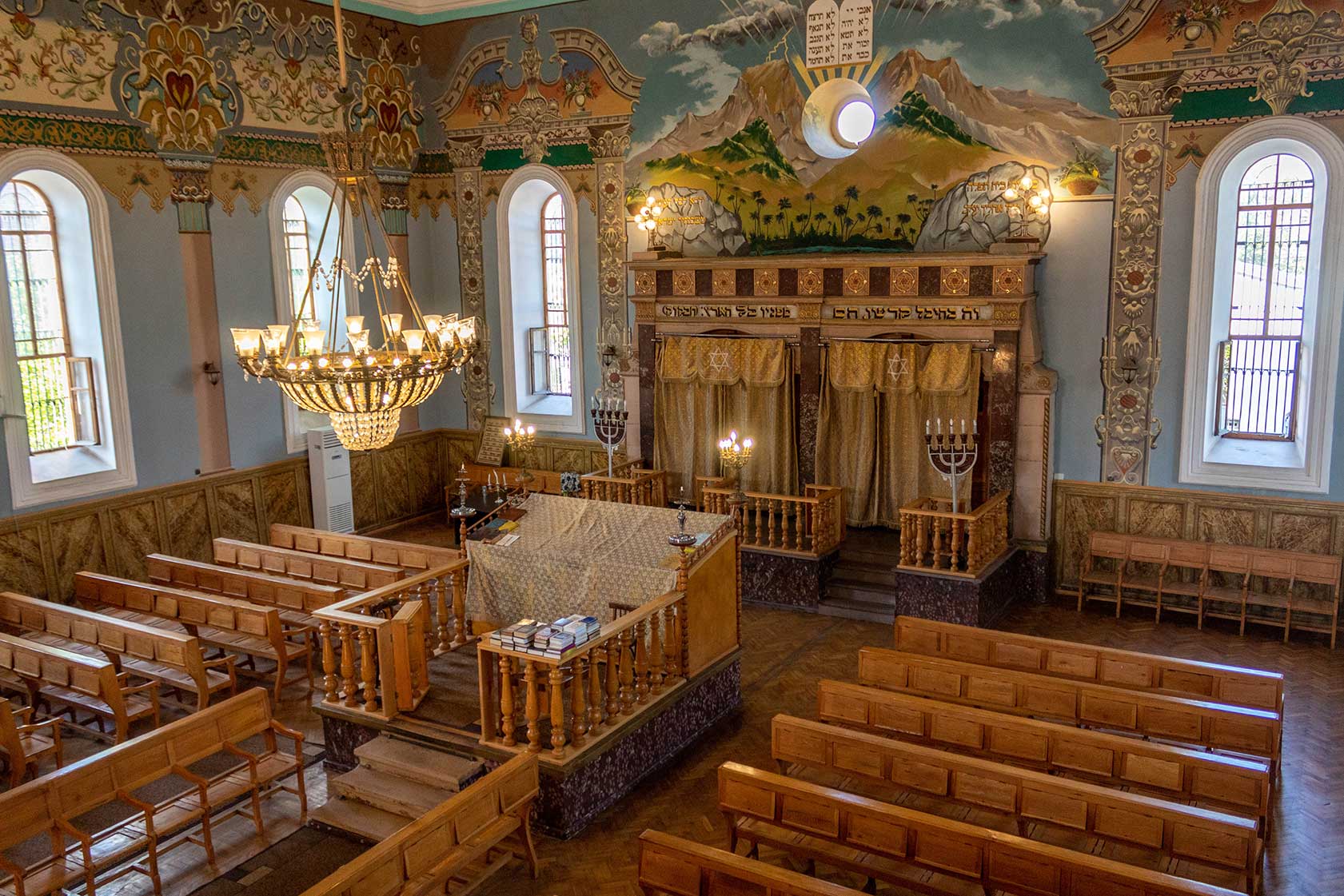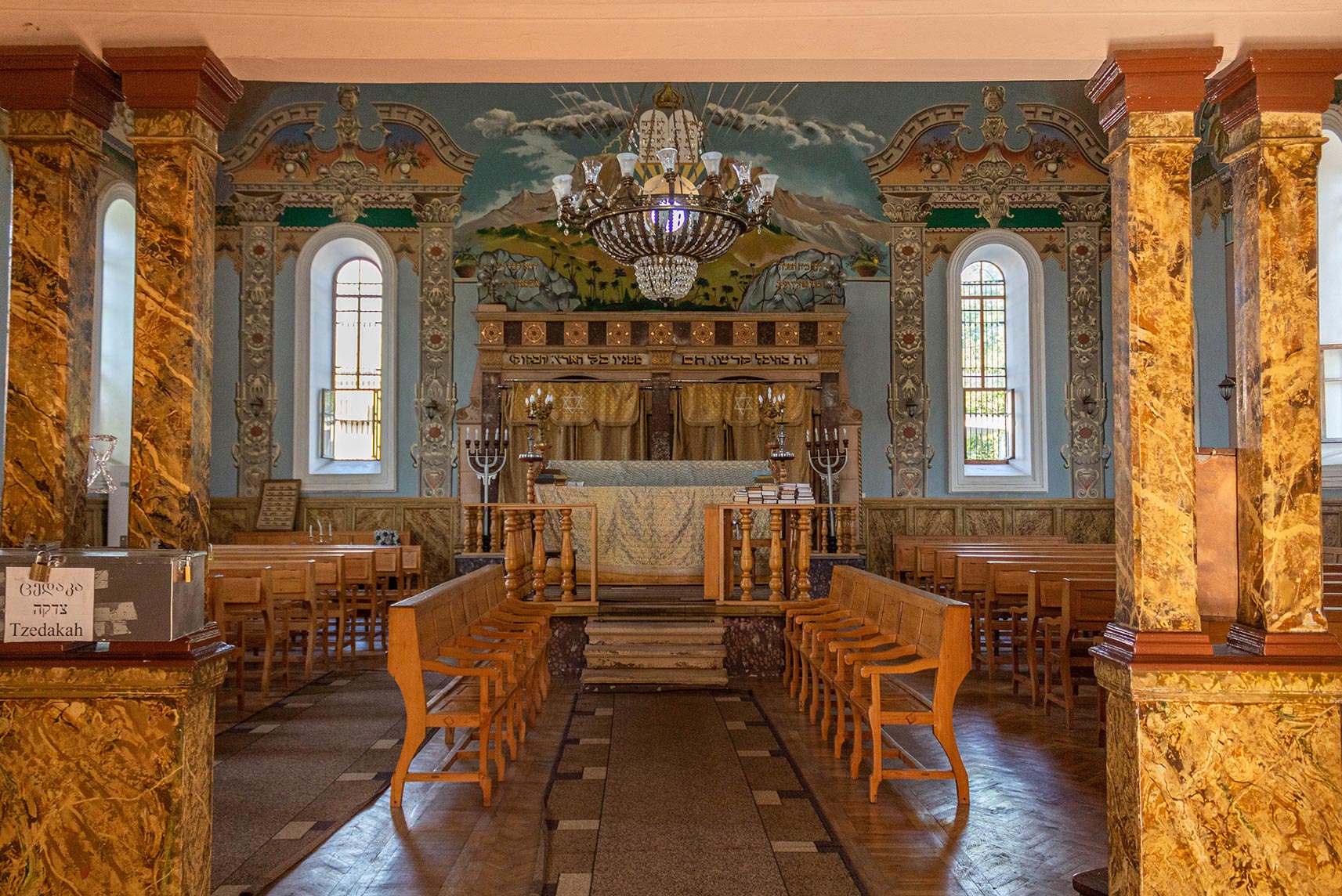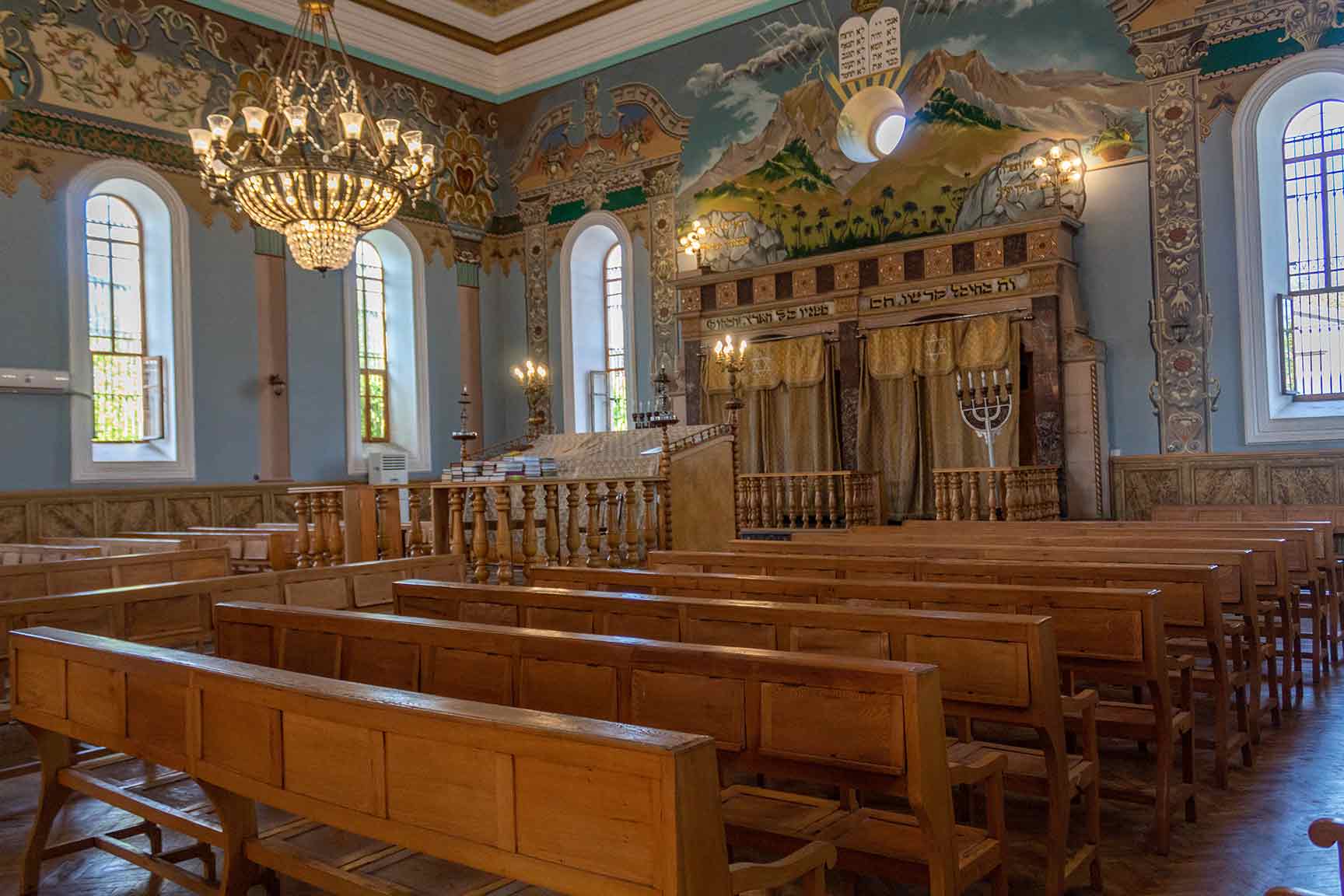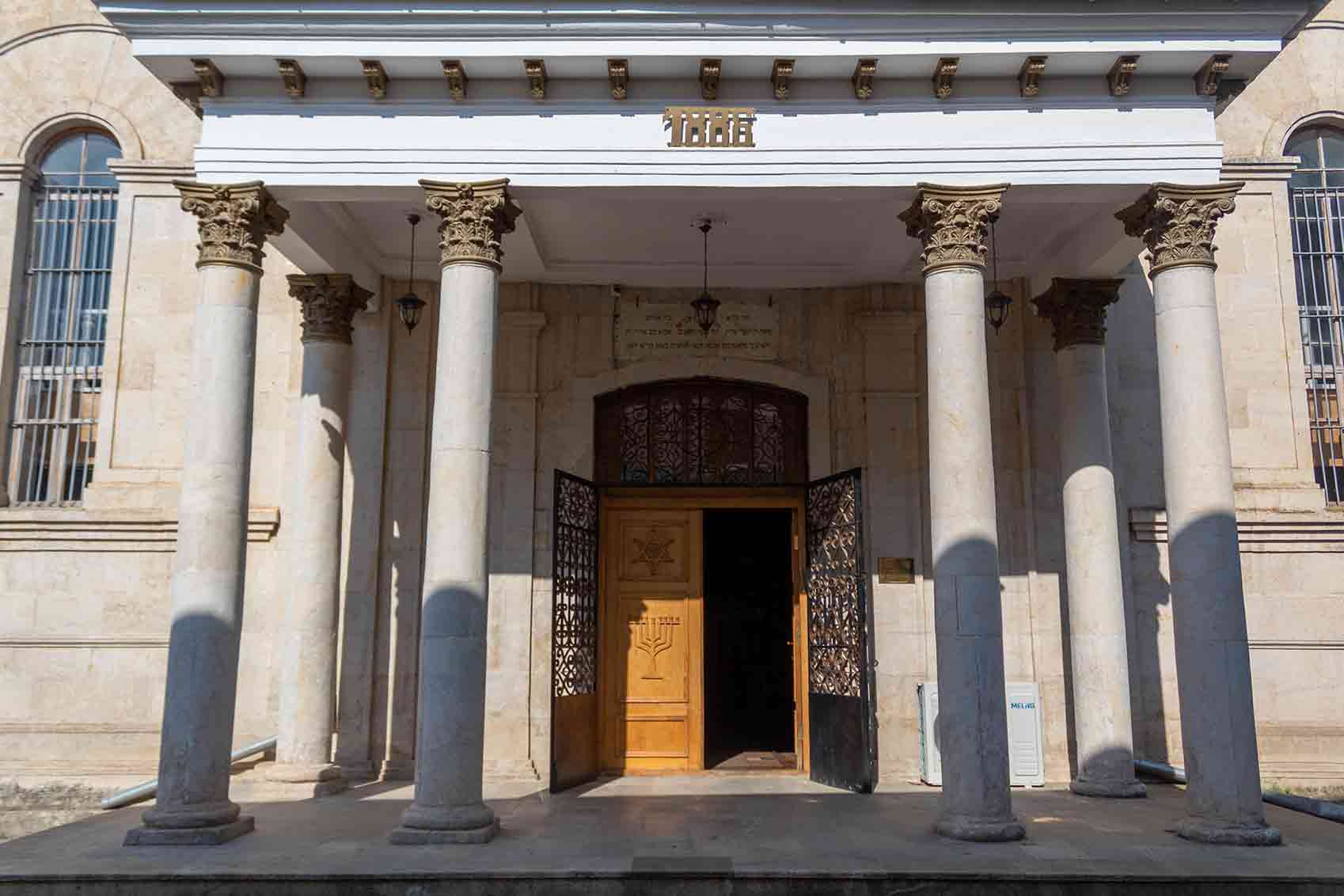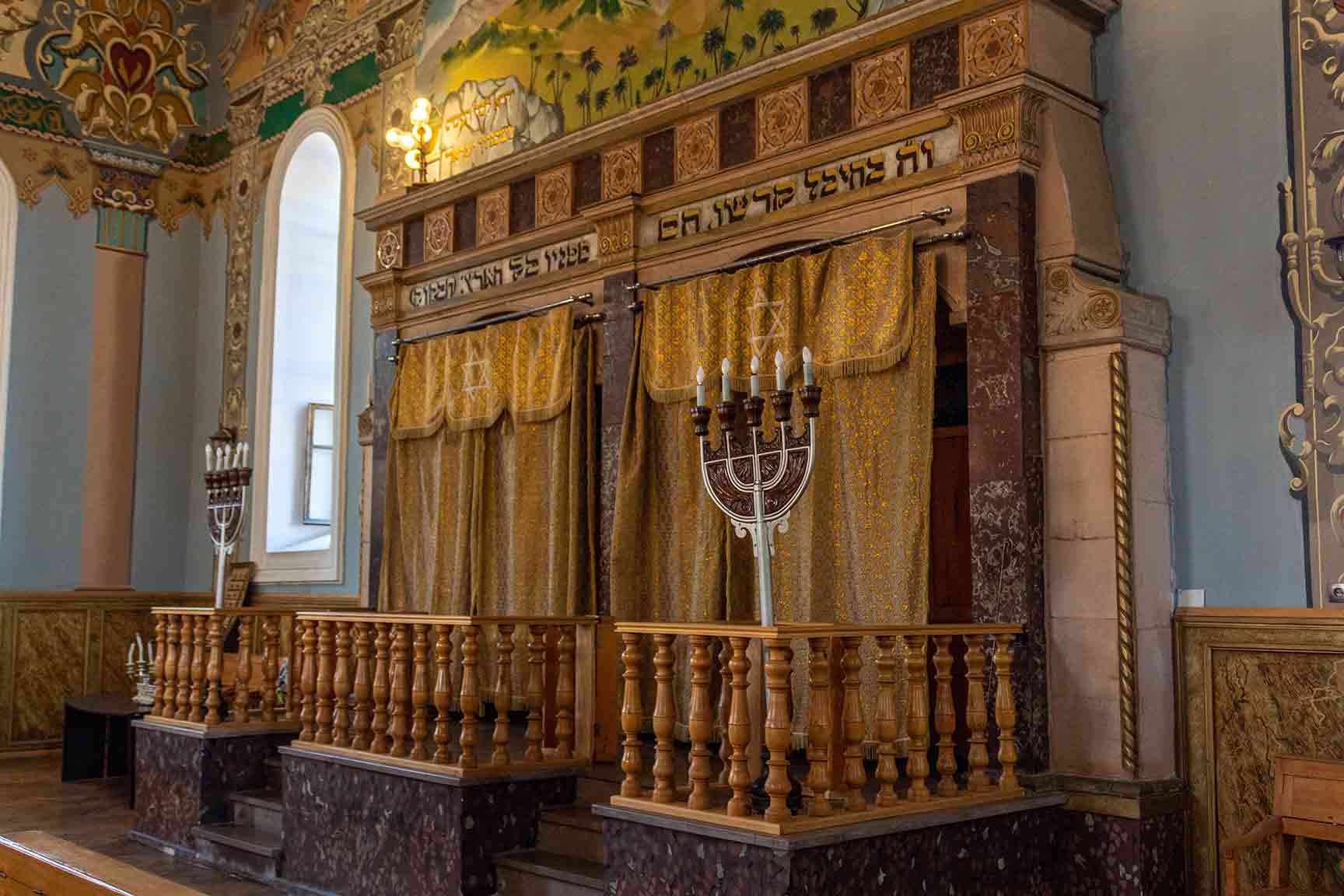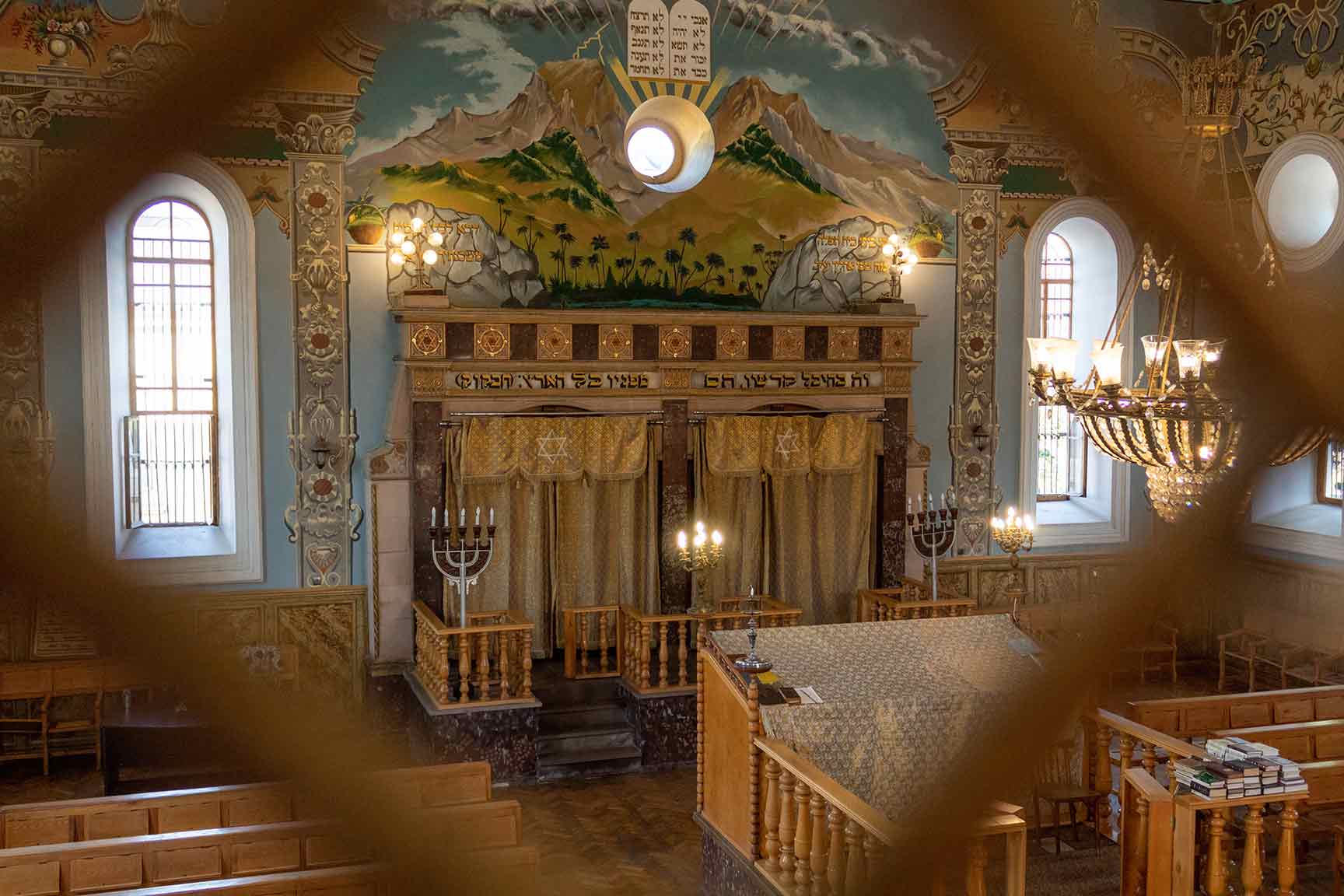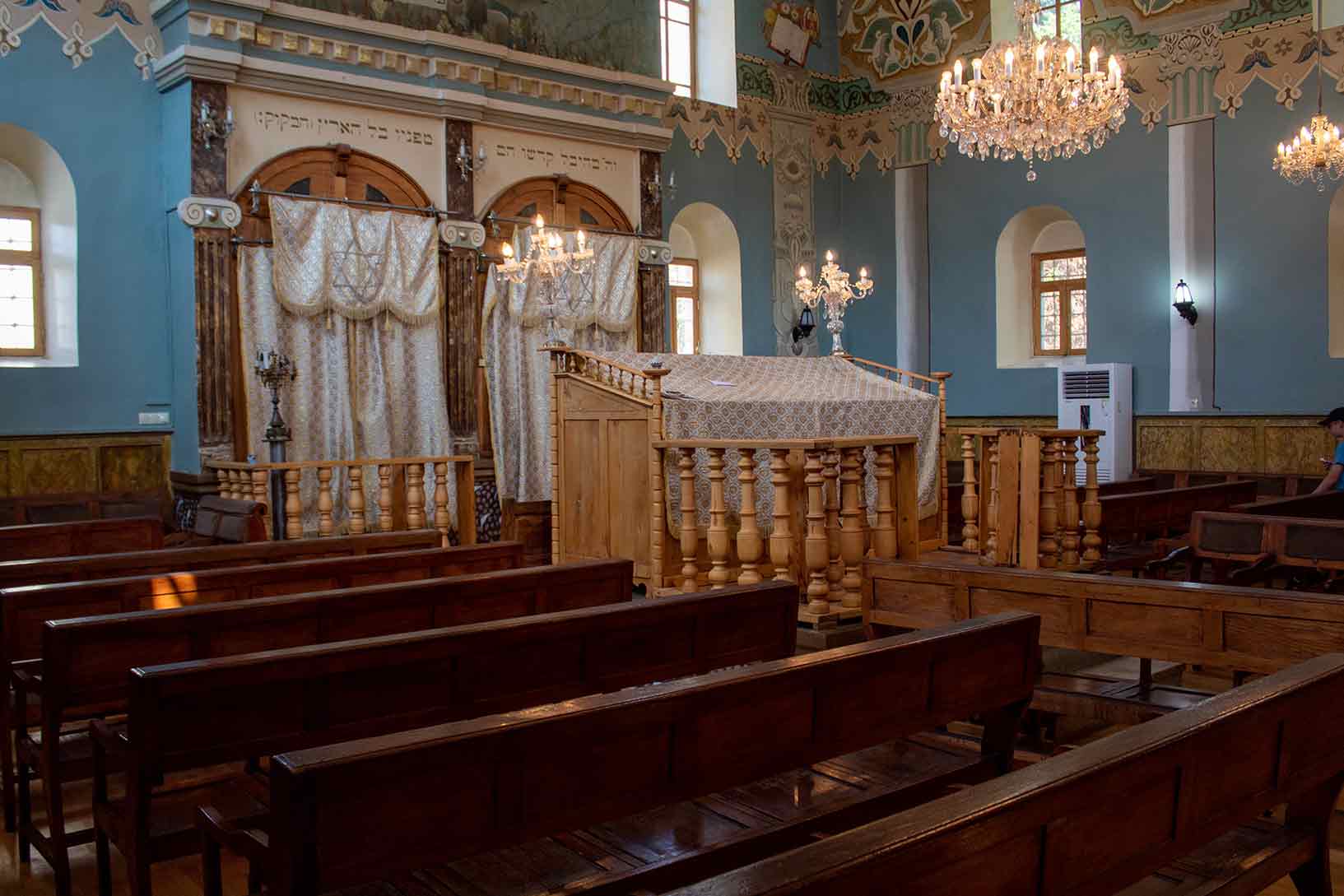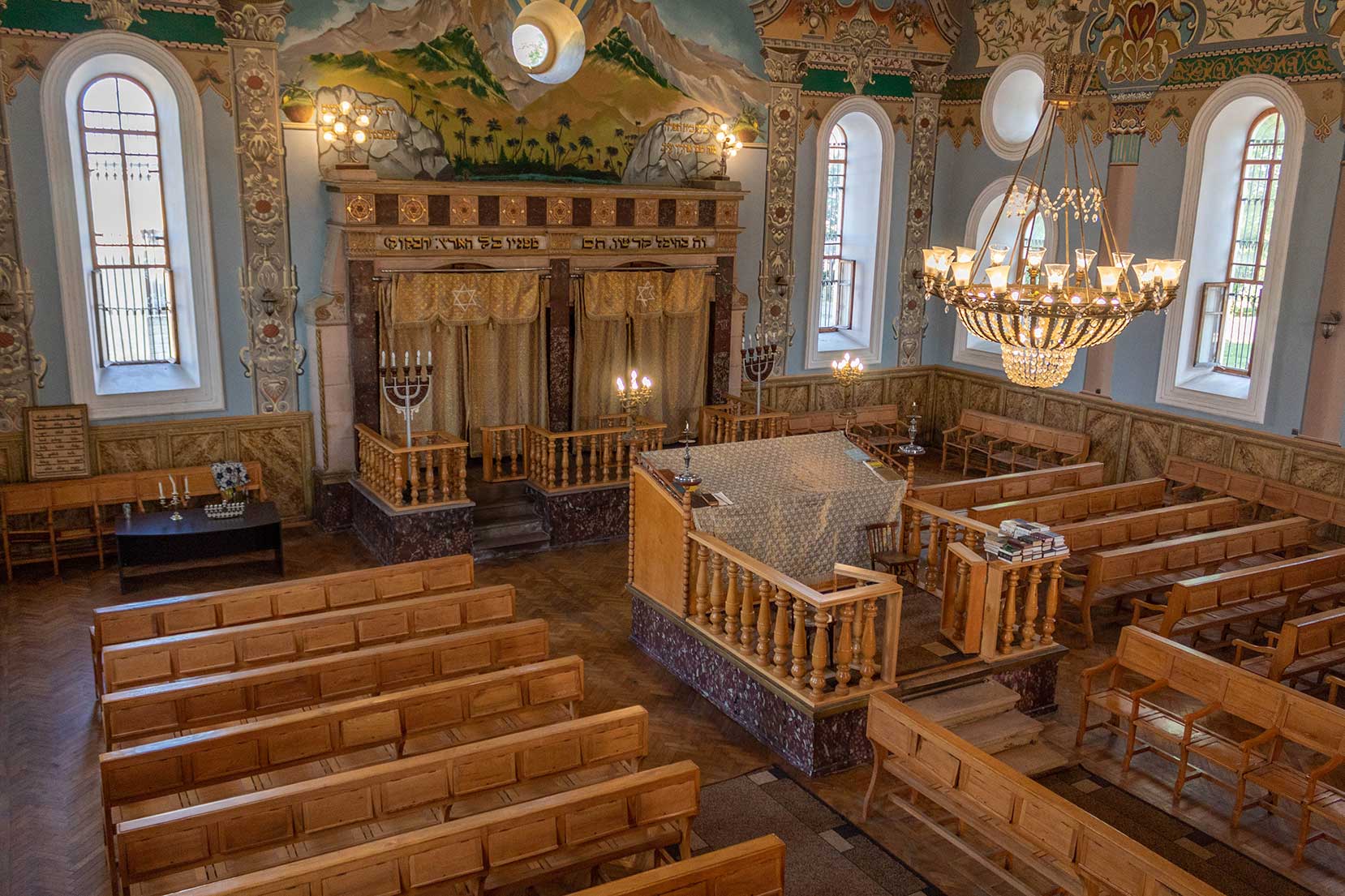Kutaisi Synagogue
Jews have lived in Georgia for centuries. The first wave of immigration most likely happened in the 6th Century BCE during or after the Jewish Babylonian exile. Later through the centuries Jews from other parts of the world immigrated to Georgia, forming what is known as Georgian Jews. Georgian Jews are the closest genetically-speaking to Persian and Iraqi Jews supporting the theory that they originally ended up in Georgia after Nebuchadnezzar's capture and forceful exile of the Jews of ancient Israel, meaning that there had been Jewish presence in Georgia for the last 2600 years. The Ashkenazi Jews started coming to Georgia after the Russian Annexation of Georgia in 19th century. There were many centers of Jewish life and learning in Georgia and Kutaisi was one of the main centers for many centuries. Jewish communities of Georgia were located in Tbilisi, Kutaisi, Batumi, Oni, Akhaltsikhe, Akhalkalaki, Surami, Kareli, and Gori, and synagogues are still located in most of these cities. Kutaisi is the second largest city in Georgia currently and the Jewish community here was one of the largest in Georgia. Jewish people have lived in Kutaisi since the Middle Ages and played an important cultural, educational and economic role in the life of the city. The area between Gaponovi Street and Mtsvanekvavila is still called Jewish district to this day and houses 3 synagogues. In 1886 the first Synagogue was built and in 1912, in the same yard, a second Synagogue was built. At the entrance to the yard housing these two synagogues there is a statue of Boris Gaponov, a translator (lexicographer) from Georgian to Hebrew, who grew up in Kutaisi. He was famous for translating "The Knight in the Panther's skin", which is a celebrated work of a very famous Georgian poet Shota Rustaveli, to Hebrew. There is a third Synagogue in this district, which is called Old Chapel. Many of the houses around these synagogues used to be part of the Jewish community which at it's height, was numbered in the 24000's. At this point most Jewish families left but there is still a small community, with the synagogues in the center of it. Many visitors visit Kutaisi synagogues every year as the experience will take you through the centuries and enrich your knowledge of history and presence of the Jewish people in this region. The synagogue also offers kosher catering for those travelers who keep kosher.
For information related to visiting the synagogue or kosher catering contact Yosef by phone or WhatApp:

For information related to visiting the synagogue or kosher catering contact Yosef by phone or WhatApp:
Phone
+995 571 08 08 48(Georgian or Russian language preferred)
